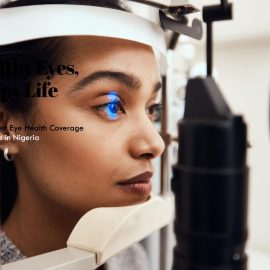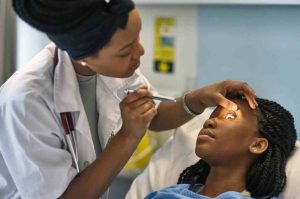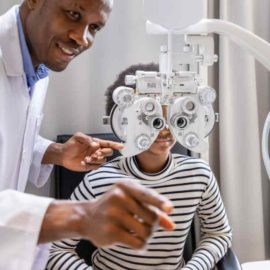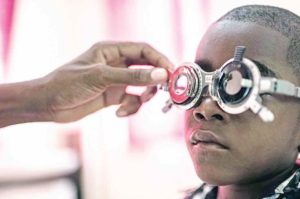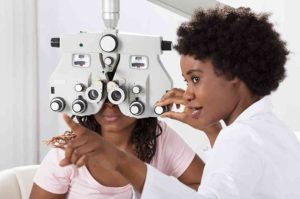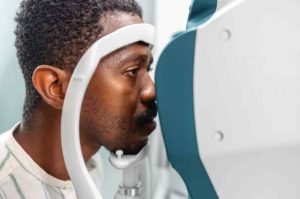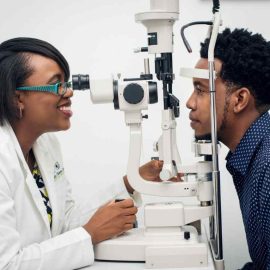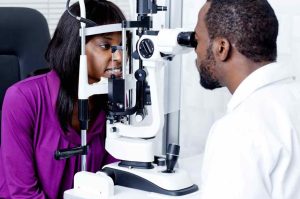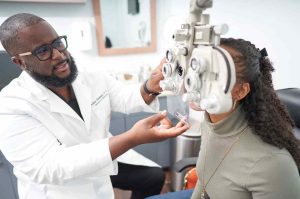The Ultimate Guide to Eye Health Coverage by HMOs in Nigeria
In Nigeria, the focus on eye health has often been overshadowed by the pressing demands of infectious diseases and general healthcare challenges. However, a gradual but significant shift is occurring as Health Maintenance Organizations (HMOs) increasingly recognize the importance of vision care. The integration of eye health benefits into HMO packages represents a pivotal change that addresses both immediate and long-term healthcare needs of Nigerians.
The Importance of Eye Health
Vision is a critical aspect of overall health and well-being. The World Health Organization (WHO) estimates that over 2.2 billion people globally have a vision impairment or blindness, with at least one billion cases being preventable or treatable. In Nigeria, the situation is similarly dire. According to the Nigerian National Blindness and Visual Impairment Survey, approximately 4.25 million adults aged 40 years and above are visually impaired, with 1.13 million being blind.
Unaddressed vision problems can lead to severe consequences, including reduced quality of life, loss of productivity, and increased healthcare costs. For children, poor vision can impair learning and development, potentially limiting future opportunities. For adults, especially the elderly, it can lead to accidents, social isolation, and an overall decline in health. Thus, the emphasis on eye health is not just a medical necessity but a socio-economic imperative.

The Role of HMOs in Nigerian Healthcare
Health Maintenance Organizations (HMOs) are pivotal in the Nigerian healthcare system. They provide a structured way for individuals and employers to access health services through prepaid plans. HMOs manage healthcare financing and delivery, ensuring that members receive necessary medical services without facing prohibitive costs at the point of care.
Historically, HMO packages in Nigeria have focused on general health services, such as consultations, hospitalizations, maternal and child care, and treatments for common diseases. However, recognizing the critical need for comprehensive eye care, several HMOs are now expanding their coverage to include eye health benefits.
Integrating Eye Health into HMO Packages
The inclusion of eye health benefits in HMO packages marks a significant advancement in Nigerian healthcare. This integration involves offering routine eye exams, treatment for common eye conditions, and even surgical procedures when necessary. Here’s how some HMOs in Nigeria are prioritizing eye health:
- Routine Eye Exams and Screenings: Regular eye exams are essential for early detection and treatment of vision problems. HMOs are increasingly covering annual or biennial comprehensive eye exams, which help identify conditions such as glaucoma, cataracts, diabetic retinopathy, and refractive errors. For instance, AXA Mansard Health, one of Nigeria’s leading HMOs, includes routine eye checks in their health plans, recognizing the need for proactive eye care.
- Treatment of Common Eye Conditions: Conditions like conjunctivitis, dry eyes, and minor eye infections are common and can significantly impact daily life. HMOs are now covering treatments for these ailments, ensuring that members can access necessary medications and consultations without financial strain. This approach helps in managing eye health effectively and prevents complications from untreated conditions.
- Surgical Interventions: For more severe conditions such as cataracts and glaucoma, surgical intervention is often required. Some Nigerian HMOs have begun to cover these procedures, either partially or fully, within their premium plans. Hygeia HMO, for example, offers coverage for cataract surgery, which is a leading cause of blindness in Nigeria. By doing so, they provide a lifeline to those who might otherwise forego such necessary interventions due to cost constraints.
- Specialist Referrals and Partnerships: Collaborations with eye care specialists and clinics are crucial for providing comprehensive eye health services. HMOs are forming partnerships with renowned eye hospitals and specialists to ensure that their members receive high-quality care. For example, Leadway Health HMO partners with specialized eye clinics to facilitate access to expert care for complex eye conditions.
- Education and Awareness Campaigns: Prevention and early intervention are key components of eye health. HMOs are increasingly engaging in educational campaigns to raise awareness about the importance of regular eye check-ups and protective measures. These initiatives are vital in a country where access to health information can be limited, and misconceptions about eye health abound.
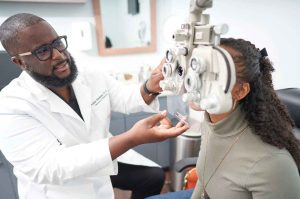
Impact on Public Health and Society
The prioritization of eye health by HMOs has far-reaching implications for public health and society. By ensuring that members have access to eye care services, HMOs are contributing to:
- Reduced Burden of Blindness and Visual Impairment: Early detection and treatment of eye conditions can significantly reduce the prevalence of blindness and visual impairment. This has a direct impact on individuals’ quality of life and their ability to contribute productively to society.
- Improved Quality of Life: Good vision is integral to daily living and overall well-being. By facilitating access to eye care, HMOs help individuals maintain their independence, engage in social activities, and perform tasks that require clear vision, from reading to driving.
- Economic Benefits: The economic impact of unaddressed vision problems is substantial. Individuals with vision impairment often experience reduced productivity and higher healthcare costs. By covering eye health services, HMOs help mitigate these economic burdens, leading to a healthier, more productive workforce.
- Enhanced Educational Outcomes: For children, clear vision is essential for learning. By including pediatric eye exams and treatments in their plans, HMOs support better educational outcomes. This investment in eye health is an investment in the future, as children with good vision are more likely to succeed academically and pursue higher education and employment opportunities.
- Reduced Healthcare Costs: Preventive eye care can lead to early detection of systemic diseases such as diabetes and hypertension, which have ocular manifestations. By identifying these conditions early, overall healthcare costs can be reduced through timely intervention and management.
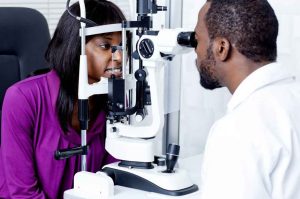
Challenges and Future Directions
While the integration of eye health benefits into HMO packages is a positive development, several challenges remain. These include:
- Awareness and Utilization: Despite the availability of eye care benefits, not all HMO members utilize these services. There is a need for continued education and outreach to ensure that members understand and take advantage of their benefits.
- Access and Infrastructure: In rural and underserved areas, access to quality eye care remains a challenge. HMOs must work towards improving the distribution of services and partnering with local providers to reach these populations.
- Cost Management: The cost of advanced eye care services, such as surgeries and specialized treatments, can be high. HMOs need to balance offering comprehensive benefits with maintaining affordability for their members.
- Data and Research: There is a need for more robust data on the impact of eye health benefits within HMO plans. Research and data collection can help in assessing the effectiveness of these benefits and guiding future improvements.
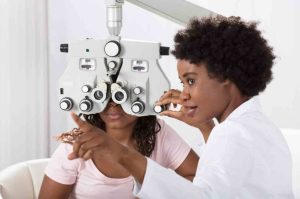
Conclusion
The prioritization of eye health by HMOs in Nigeria is a significant step towards improving the overall health and well-being of the population. By integrating comprehensive eye care services into their packages, HMOs are addressing a critical aspect of healthcare that has long been neglected. This move not only enhances the quality of life for individuals but also contributes to broader socio-economic benefits.
As HMOs continue to evolve and expand their offerings, the focus on eye health should remain a priority. With ongoing efforts to raise awareness, improve access, and manage costs, the future of eye health in Nigeria looks promising. This shift reflects a growing recognition that vision care is not a luxury but a necessity, integral to achieving a healthier, more productive society.

